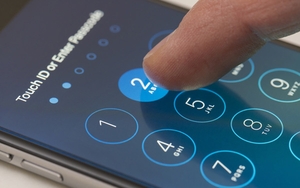 Suppose that a nuclear device on a timer, or a child being tortured, is on the other side of a door -- would you hand over the key, ask Time correspondents Nancy Gibbs and
Lev Grossman in an interview with Apple CEO Tim Cook.
Suppose that a nuclear device on a timer, or a child being tortured, is on the other side of a door -- would you hand over the key, ask Time correspondents Nancy Gibbs and
Lev Grossman in an interview with Apple CEO Tim Cook.
The hypothetical question came up during a recent Timeinterview with
Cook in a discussion about privacy, America's security, and the ongoing debate and battle with the F.B.I. over encryption following the San Bernardino, Calif., terrorist attack in 2015.
Cook,
who opposed helping create a backdoor key after Apple provided the information related to the iCloud backup, said "if I had a key to that door I would turn that door. But that’s not the issue
here, just to be clear. It’s not that I have information on this phone, and I’m not giving it. I had information. I gave all of it."
advertisement
advertisement
The F.B.I wants Apple to invent a key, but Cook
believes that "no one should have a key that turns a billion locks" -- which Peter Friedman, LiveWorld's chairman and CEO, points to as one of the important passages in the interview. He worked at
Apple for more than 10 years in the 1980s and 1990s, the most recent as VP and GM of Apple Internet Services.
In fact, Apple encryption engineers could quit their jobs if they were forced to
help law enforcement authorities unlock the iPhone, rather than undermine the security of the software they created. Friday's report cites more than a half-dozen current and former Apple
employees.
"If you open a back door a great many people will enter," Friedman told Search Marketing Daily in an earlier interview during South by Southwest Interactive. "Big Web
sites are under cyberattack continually, and you need to fight them in other ways."
The request makes it possible to reopen anyone’s phone through hacking and surveillance. If Apple
complies with the F.B.I., Friedman said, this will not only trample civil rights, but will expose national security and enable terrorists to learn more about where people are and carry out more
attacks on individuals and crowds -- and that just as it enables law enforcement to get into terrorist phones, it will enable terrorists to gain access into law enforcement phones.
If Apple
did this, as Cook suggests, some third parties around the world could create software to put the encryption back in, Friedman said. "I’ll add so the terrorists would have it and be protected
anyway, but U.S. law enforcement wouldn’t use it to protect themselves as they would be violating U.S. rules to do so we’d be even worse off than we are now," he said.
So, yes, "it
sucks" that we cannot get more information from terrorists in this way Friedman said -- but it's the price of civil liberties, and not arming the terrorists with a way to get at the information they
want and endangering us even more.
"If you open a back door a great many people will enter," he said. "Big Web sites are under cyberattack continually, and you need to fight them in other
ways."